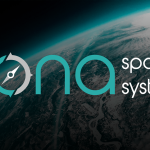Xona Space Systems announced that completion of a new funding round will support the company’s first orbital mission, scheduled for mid-2022, to demonstrate the capabilities of its Pulsar precision low-Earth orbit (LEO) PNT service, an independent high-performance satellite navigation and timing system designed to meet the needs of intelligent systems.
GNSS have become the backbone of nearly every aspect of the modern connected world. However, threats to these systems along with consumer demands for enhanced performance are increasing rapidly. Xona’s Pulsar precision LEO PNT service leverages the recent advances in small-satellite technology to provide users with a secure and robust alternative to traditional GNSS. Xona’s patent-pending system architecture will use the efficiency of small satellites to provide an affordable global service with more than 10x better accuracy and 100x better interference mitigation than the legacy systems, according to the company.
Xona successfully tested its navigation system during a ground-based demo earlier this year and is now expanding its laboratory facilities to support further development and enable on-site testing and manufacturing. This funding round will also provide for the continued growth of a highly technical team composed of space and GNSS experts from both the private and commercial space industry, including NASA, Lockheed Martin, Maxar, L3 Harris, Blue Origin and SpaceX alumni.
“Knowledge of location and time is one of the most fundamental aspects of both human life and machine operation,” said Brian Manning, CEO of Xona. “GNSS creates trillions of dollars of value by accurately answering the questions of ‘where am I?’ and ‘what time is it?’ for users all around the world. Xona was founded around the mission of enabling modern technology to operate safely in any environment, anywhere on Earth. To achieve this for both humans and machines, a foundation of reliable and accurate PNT is an absolute necessity, which is exactly what we are working to provide at Xona.”
The latest round of funding was co-led by Seraphim Space Investment Trust and MaC Venture Capital, with participation from Toyota Ventures, Daniel Ammann (co-founder of u-blox), and Ryan Johnson (former CEO of BlackBridge, operator of the Rapideye constellation). Follow-on investors include 1517 Fund and Stellar Solutions.
“The time is ripe for the next generation of satellite navigation systems with lower-cost private launch services,” said Jim Adler, Founding Managing Director of Toyota Ventures. “Xona Space Systems is bringing a better navigation solution with break-through availability, accuracy, and security. Brian and his team are combining innovative technology with a smart business model, and we’re excited to join their journey as part of their investment team.”
We view global coverage of a safe, secure, and highly accurate navigation service as critical to the future of autonomy and countless other markets,” says Jeff Crusey, Investment Director of Seraphim Space Investment Trust. “We’re excited to continue supporting Xona because they’re an extremely talented and uniquely positioned team to execute on this plan.”






